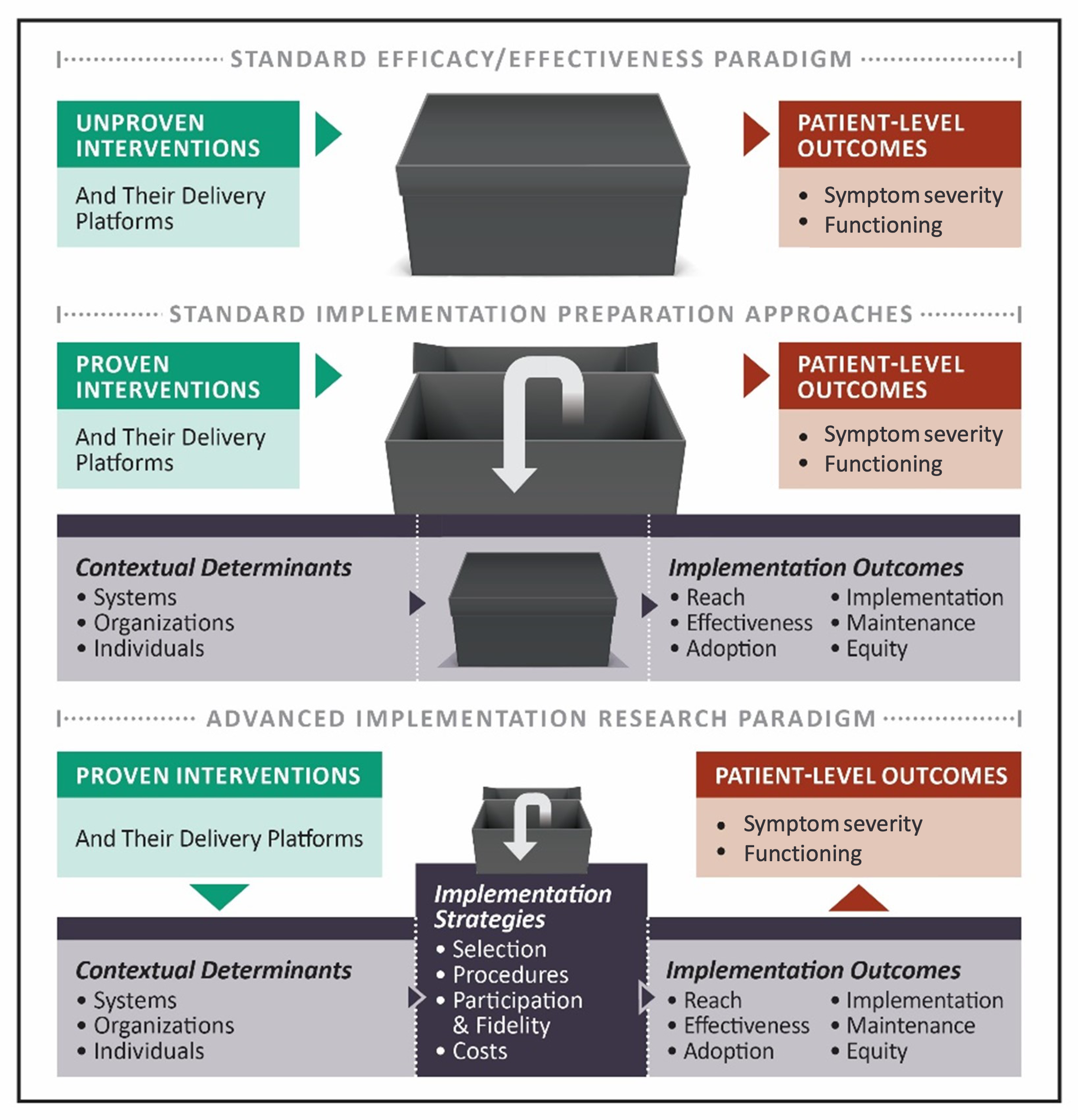Advancing D&I Science in Addiction Treatment
The C-DIAS Research Core integrates three teams of experts led by top research scientists to increase equity in the delivery and sustainment of the best available treatments for everyone.
A major challenge to closing the identified gaps is advancing our knowledge of not just what treatments to implement—but how to implement and sustain them.
Implementation strategies are the activities necessary to install and maintain the best available treatments so that people who need care can get high-quality care. Leading advanced implementation research design and development via four large studies across the United States, the C-DIAS Research Core strives to unpack the black box of Implementation Strategies (Figure 1).
Unlike the prevailing, expensive, and inefficient practice of widespread provider training and one-size-fits-all technical assistance, greater evidence-based precision is needed to optimize the return on investment of national, public, and private health systems efforts to address the national addiction problem—particularly the opioid overdose epidemic.
Research Core
The Research Core is divided into three sections that synergize to advance implementation research in addiction:

Research Core
The Research Core supports 3 innovative research projects and is organized into 3 sections:

Research Projects
C-DIAS includes 4 Research Projects that together advance D&I science and improve equitable access to high-quality addiction treatment. The use of common instruments and standard methods across projects optimizes the opportunity to advance implementation science beyond C-DIAS. These projects will have an immediate public health impact while serving as open field-testing laboratories for the methods and tools developed by the C-DIAS Research Core.
The projects are:


